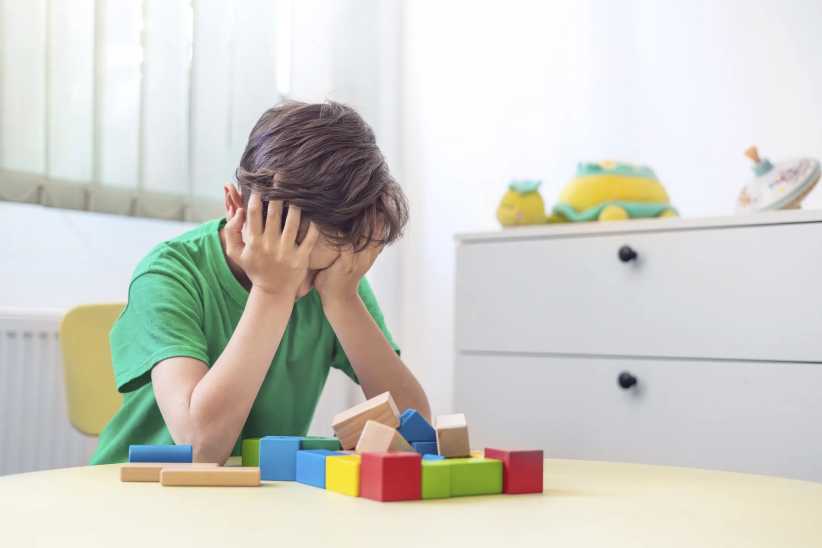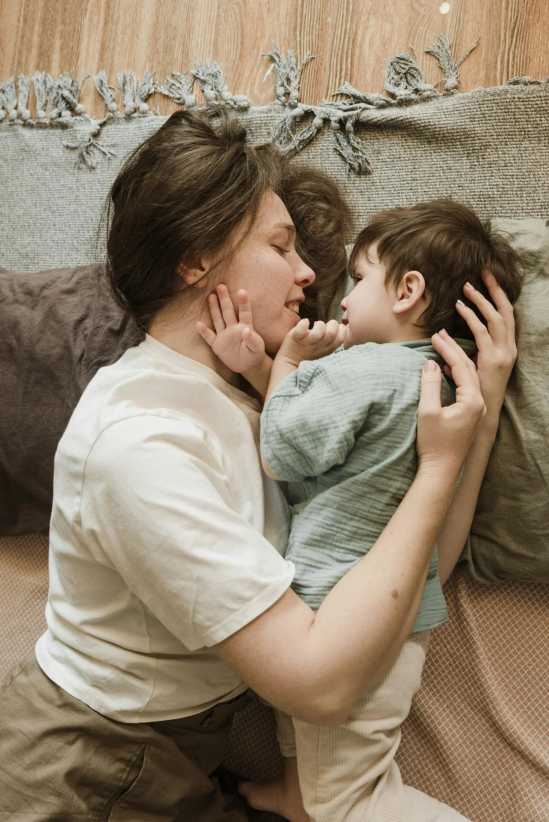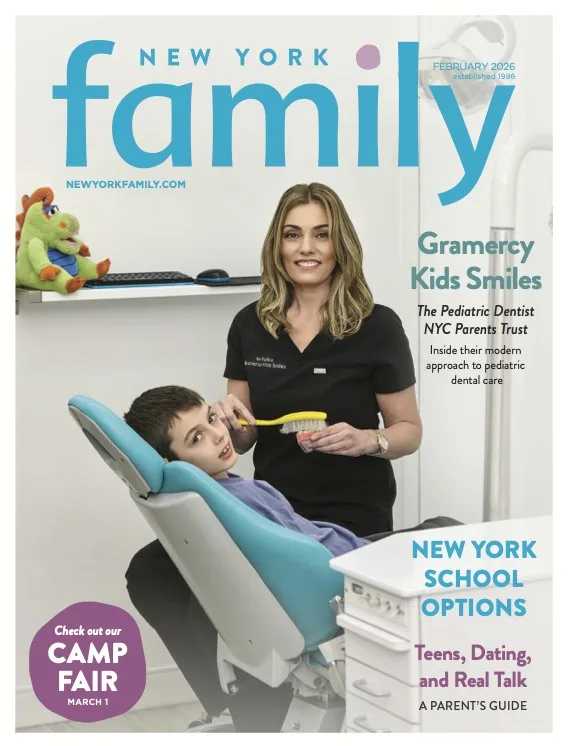UPDATED APRIL 2019: Raising a child with a unique set of special needs can have you feeling isolated and unsure of how to connect with other parents going through the same thing—and unfortunately, support groups are hard to find if you don’t know where to look. To make this process easier, we curated a list of support groups in Brooklyn, the Bronx, Manhattan, Queens, and Staten Island that offer parents of kids with a wide variety of special needs a space to share experiences and resources—and help each other know no one is alone in this journey. Many of these organizations also connect parents to information and resources that can help their children live fulfilled lives.
Brooklyn
3692 Bedford Ave., Suite P2, Midwood
646-837-5557
The Center for Anxiety offers support groups for individuals with OCD, as well as their families and friends, in Brooklyn on the first and third Wednesday of each month. Attendees can reserve a spot by contacting the office or emailing ysobin@centerforanxiety.org.
Helen Keller Services for the Blind: Brooklyn
180 Livingston St., Downtown Brooklyn
info@helenkeller.org
718-522-2122
Free workshops are hosted by the Parent & Early Education Resource Center at the Children’s Learning Center. The center also provides services for people of all ages who are blind or have vision impairments.
Institute for Community Living Family Resource Center
Terry Johnson, director
2581 Atlantic Ave., Cypress Hills
info@iclinc.net
718-290-8100 x21205 • 877-425-8133
This community-based program operated by parents of children with special needs is for parents whose children have emotional or behavioral issues. It provides services such as clinical consultation, parenting classes, workshops, peer-to-peer support groups, support groups for parents, and after-school programs for children. It also offers monthly family nights and anger management classes for children and parents. Services available in Bedford-Stuyvesant, Brownsville, Bushwick, Crown Heights, and Williamsburg. Parent support group services are offered in English and Spanish.
Program director: Denise Stephenson
858 E. 29th St., Flatbush
stephensond@jccany.org
718-859-4500
The association offers a variety of support groups for parents with various concerns, such as child mental health issues, adoption, family rights and entitlements, and education. Groups meet weekly in Flatbush and Coney Island. Child care is provided during parenting groups.
Creative director: Wayne Clarke
9603 Flatlands Ave., Canarsie
info@mytimeinc.org
917-933-9875
Parent support group sessions focus on a range of topics relating to children’s developmental disabilities, including sharing development and playtime ideas for children. Guest speakers also provide different perspectives and insights. There are specific groups for fathers and grandparents. All groups provide positive coping behaviors, ongoing support, and are places to share ideas and find emotional support.
Twice Exceptional Children’s Advocacy
TECA offers online support groups throughout the year, facilitated by professionals with experience in each support group topic.
Bronx
Bronx Parents Autism Support Circle
14 W. 170th St., Mount Eden
646-450-2567
bpasccontact@gmail.com
This organization provides a safe space for moms and dads to find resources and support in raising children with autism. Support groups meet on the second Tuesday of each month, September-June, from 7-9pm. Parents can bring their kids if necessary. Once parents attend an event or group, they will be invited to a private BPASC Facebook group where they can receive ongoing support and guidance outside of meetings.
Services for the Developmentally Challenged
The Church of the Mediator, 260 W. 231st St., Kingsbridge
Crusita Ramos: 718-432-8469
This group, which meets on the last Thursday of each month, is for parents of children with intellectual and developmental disabilities, and self-advocates ages 20 and older with intellectual or developmental disabilities. “We Are Family” offers education and training to help parents provide better for their kids and themselves, guests speakers, and a place for families and individuals to discuss the issues they are facing right now.
Manhattan
Asperger Syndrome and High Functioning Autism Association
303 Fifth Ave., Suite 1003, 10th Floor, Flatiron District
info@ahany.org
888-918-9198
The Asperger Syndrome and High Functioning Autism Association offers several no-fee support meetings throughout New York City for parents, family members, and caregivers that focus on educating, advocating, and creating activities for families to help them cope with their child’s diagnosis of Asperger’s syndrome and related conditions.
Bernice Bernhard, Ph.D.
44 W. 62nd St., Upper West Side
212-245-2994
Offers counseling and support for parents with children of special needs in all categories.
Center For Hearing & Communication
50 Broadway, 6th Floor, Financial District
info@chchearing.org
917-305-7700 • 917-305-7999 TTY
The Center for Hearing and Communication, a nonprofit organization, offers weekly therapeutic support groups for parents of children with hearing loss, from coping with the news to connecting with parents who are dealing with a similar situation.
101 E. 56th St., Midtown
212-308-3118
The Child Mind Institute, a nonprofit dedicated to transforming mental health care for children and empowering their families with help, hope, and answers, holds a wide variety of workshops for parents and educators to gain invaluable skills and learn how to help children take control of their condition and thrive. Find workshop schedules on the website.
An ADHD Guide, as well as workshops, helps parents understand the ins and outs of the disorder.
An OCD Guide for Parents covers a range of issues affecting children with obsessive-compulsive disorder and their support networks, from navigating friendships and family gatherings to the ins and outs of treatment and medication.
The organization also holds seminars and publishes guides on selective mutism.
301 E. 29th St., Kips Bay
lclark@churchillschool.com
212-722-0610
The Parent Educational Network at Churchill School hosts a series of programs and workshops during the school year that focus on helping parents to better support their children’s needs.
The Epilepsy Foundation of Metropolitan New York
65 Broadway, 5th Floor, Suite 505, Downtown Manhattan
info@efmny.org
212-677-8550
The foundation offers 1-on-1 psychotherapy and psychiatry for adults with epilepsy. Though there are no clinic services for children, it offers Medicaid Service Coordination for children and adults who are developmentally disabled/Office for People with Developmental Disabilities eligible. Parents are invited to contact the foundation for information on resources and referrals in the metropolitan area.
FACES, Finding A Cure For Epilepsy and Seizures
223 E. 34th St., Murray Hill
Peggy Guinnessey: 212-263-2644
peggy.guinnessey@nyumc.org
FACES, part of the NYU Langone Medical Center, provides a Parents Network that connects parents with parent mentors who have experienced similar obstacles raising a child with a chronic illness such as epilepsy. Valuable mentorship teaches parents about the hospitalization process, educational services, and offers social support.
GiGi’s Playhouse Down Syndrome Achievement Center
106 W. 117th St., Harlem
nyc@gigisplayhouse.org
646-801-7529
Support group for new and expectant parents of children with Down syndrome. Meet other parents, discuss experiences, make connections, receive support, and learn about resources helpful to the Down syndrome community. Experienced mentors who can answer your questions about Early Intervention and other services are also available. This is a group that frequently invites guest speakers to talk about best practices in caring for infants with Down syndrome.
The Global and Regional Asperger Syndrome Partnership
369 Lexington Ave., 2nd Floor, Murray Hill
info@grasp.org
888-474-7277
Both online and regional support groups (adult and teen) are available through GRASP. There are separate support groups for women, LGBTQI individuals, people older than 50, and more depending on your region.
Harlem Independent Living Center
289 Saint Nicholas Ave., Suite 21, Lower Level, Harlem
info@hilc.org
212-222-7122 • 212-222-7198 TTY
In addition to offering peer counseling and support groups for people living with disabilities, the Harlem Independent Living Center, a nonprofit organization, works in the community to help these people live independently.
INCLUDEnyc Parent Support Group
116 E. 16th St., 5th Floor, Gramercy Park
212-677-4660
INCLUDEnyc offers a monthly support group for parents of children with any disability.
The Jewish Community Center in Manhattan
334 Amsterdam Ave., Upper West Side
646-505-4444
The JCC has support groups that cater to parents, grandparents, fathers, parents of twins, and parents of teens. Support groups are for parents of children who have been diagnosed with developmental challenges of all kinds. Facilitators and parents’ experiences provide those in the support group with resources, the chance to network, emotional support in a sense of community, and the opportunity to solve problems. Groups meet on select Mondays from 5-6:30pm.
Lighthouse Guild International
250 W. 64th St., Upper West Side
800-284-4422
info@lighthouseguild.org
Lighthouse Guild’s Parent Support Network is a program that includes open, informational phone forums for parents to discuss their concerns about raising children who are visually impaired. Parents can also subscribe to the Parent Support Network mailing list.
Manhattan Mothers & Others
160 E. 65th St., Apt. 25D, Upper East Side
212-570-6860
manhattanmothers@aol.com
Advised Advocacy Network for children of all ages with any developmental disabilities. Family members who share similar experiences in raising a child with developmental disabilities—as well as friends of these children—provide support for one another in this safe community.
Mood Disorders Support Group New York
411 W. 114th St., 3rd Floor, Upper West Side
Bernstein Pavilion of Beth Israel Medical Center,
9 Nathan D. Perlman Place, Gramercy
This is a support group for parents and loved ones of individuals of mood disorders. Group members can receive support and have their questions, concerns, and problems addressed. Groups are offered on the UWS on Wednesdays and in Gramercy on Fridays from 7:30-9:15pm.
National Alliance on Mental Illness: New York City
Support Group Manager: Christina Bradley
505 Eighth Ave., Suite 1103, Midtown
helpline@naminyc.org
212-684-3365 x204
Helpline: 212-684-3264
The National Alliance on Mental Illness of New York City offers a broad range of nearly 30 support groups that are categorized by age, type of relationship, or illness. All groups aim to provide support, education, and advocacy.
New York Council on Adoptable Children
333 W. 39th St., Midtown
info@coac.org
212-475-0222
Parents of adopted children benefit from peer support as part of the Parent Support Group, which helps parents cope with the unique developmental and psychological issues they and their adopted children may face. Youth Support Group is also provided for young people to communicate and interact with their peers in a safe, non-judgmental environment. Parent-and-Youth Support Groups provide a safe forum to discuss conflicts that might have escalated at home, enhancing communication between parents and their adopted children, and allowing them to discuss sensitive issues effectively.
NYC Family Advocacy Information Resource
Parents of Individuals with Autism Support Group
Lynn Decker, administrator
spectrumparentnyc-owner@yahoogroups.com
This Facebook group is for families affected by intellectual and development disabilities. The forum provides a safe space for parents to share their insights, stories, and resources. Those who are not parents or guardians can send resources or information to the address above to be distributed to the group.
Parent to Parent of New York State
25 Beaver St., Room 405, Financial District
800-405-8818
Ellen McHugh: emchugh@ptopnys.org
This is a place where families of individuals with special needs can meet to discuss information, share resources, and support each other.
Quality Services for the Autism Community
253 W. 35th St., 14th Floor, Midtown
718-7-AUTISM (728-8476) x2060
These support groups provide a forum for parents to discuss the successes, disappointments, and anxieties that come from raising children with disabilities.
YAI Parents with Special Needs
212-273-6182
PWSN empowers parents of children with special needs, strengthens the parent-child connection, and enhances independence. The program works to accomplish goals parents identify for their families through many different activities, including a Support and Skills Group.
460 W. 34th St., 11th Floor, Chelsea
888-YAI-AUTISM (924-2884) • 212-273-6100
Family Support resources include strategies for managing everyday stress and changes in funding for people with developmental disabilities. YAI offers directories for family support resources for all five boroughs, including support groups for parents, siblings, and caregivers who have a relative with developmental disabilities.
Queens
Ridgewood Space, at P.S. 71, 62-85 Forest Ave., Ridgewood
These monthly parent and caregiver support groups allow parents to discuss their experiences—or any topic—with other parents on similar journeys. Parents can drop their kids at Extreme Kids’ Open Play session and head to the support group a few doors down, knowing their children are safe. Visit the website to RSVP for a group.
Moms Who Have Children With Autism (MOCHA)
mochaautismnetwork.com
MOCHA’s goal is to raise awareness of autism and related developmental disabilities, advocate for parents and children, and form alliances between parents. MOCHA aims to increase the amount of information available about autism within communities of color. Groups currently meet on Wednesdays at 12:30pm in Astoria.
National Alliance on Mental Illness: Queens/Nassau
516-326-0797
The National Alliance offers peer-to-peer support groups, an eight-week peer-to-peer support class, and two different family support groups for individuals with psychiatric diagnoses and their families. The general family support group allows individuals to connect with their families and other people in similar situations. However, the 10- to 12-week family-to-family class is offered solely for family members to connect with each other.
Queens Parent Resource Center
112-40 Francis Lewis Blvd., Queens Village
347-947-6840
james.magalee@qprc.net
The Parent Federation holds monthly workshops and meetings for families and parents of children with developmental disabilities to learn about the latest medical advances, provide support, and discuss government policies as they relate to developmental disabilities.
Staten Island
Families on the Move of New York City Inc.
358 St. Marks Place
info@fotmnyc.org
347-682-4870
This chapter of Families Together in New York State is a nonprofit dedicated to assisting families and caregivers of children who are experiencing or who are at risk for emotional, behavioral, or mental health disabilities.
The Grace Foundation of New York
460 Brielle Ave.
graceofny@aol.com
718-983-3800
This nonprofit works to improve the lives of children and families affected by autism spectrum disorder. Support groups, which meet on the second and fourth Tuesdays of every month, are geared toward parents and caregivers who learn from each other through sharing experiences and information. Support is also offered over the phone for parents and caregivers that cannot make group times.
Jewish Board of Family and Children’s Services, Staten Island Family Resource Center
1765 South Ave.
admin@jbfcs.org
718-698-5307
This nonprofit has more than 175 social service and mental health programs in New York, including child and adolescent services, early childhood and learning programs, and services for people living with developmental disabilities.
Parent to Parent Support Groups, Staten Island Special Education Parent Center
Institute for Basic Research, 1050 Forest Hill Road
Fathers’ Support Group: Page Plaza Diner, 75 Page Ave., Tottenville
718-494-4872
The center offers support groups at various times for individuals with Asperger’s syndrome, as well as mothers, fathers, and siblings in order to find informational, emotional, and social support and resources. People interested in attending the sibling support group must RSVP.
RELATED: Want more special needs news, tips, and resources? Read Special Parent!













